In a freight market as volatile as we’re seeing right now, it’s understandable that you’d be looking for ways to cut costs in any way possible. After all, you’ve got to finish the year in the black too. So as you assess your bottom line, you’re looking for the cheapest way to ship freight.
After more than 65 years in the transportation industry, we’ve certainly seen ebbs and flows in transportation costs. But one thing has held true over the past six decades: in the transportation industry, you most certainly get what you pay for.
In this blog, we’ll discuss some of the factors that go into what transportation providers charge for their rates and what you can expect with cheap freight services.
Factors That Impact What Carriers Charge for Trucking Freight Rates
Beyond the typical things that impact freight rates on a daily basis — like distance, lead time, weather, loading times and demand — there are several factors that impact a carrier’s “premium.”
Some of the main elements that impact cost include:
- A carrier’s overhead and infrastructure
- The quality of a carrier’s equipment
- The technology carriers use and provide to shippers
- The quality of the drivers in the fleet
- The level of service you’ll receive when working with them
- The safety of your freight and your reputation
After reading that list, you may be wondering why you should care about things like their infrastructure, their equipment or the technology they use — especially if it’s costing you more to ship with them. But shipping with a carrier that invests in these variables may actually save you more in the long run.
The Cheapest Trucking Companies May Not Actually Save You Money
At first glance, you may be thinking that none of the things that typically lead to paying more to ship your freight matter to you. But before you decide to cut costs in your transportation budget, consider what you may be sacrificing.
Overhead & Infrastructure
Your transportation provider’s footprint needs to match your business’s footprint. What I mean is if you need to transport your inventories across North America, your transportation provider should have a network that efficiently covers that ground for you as well.
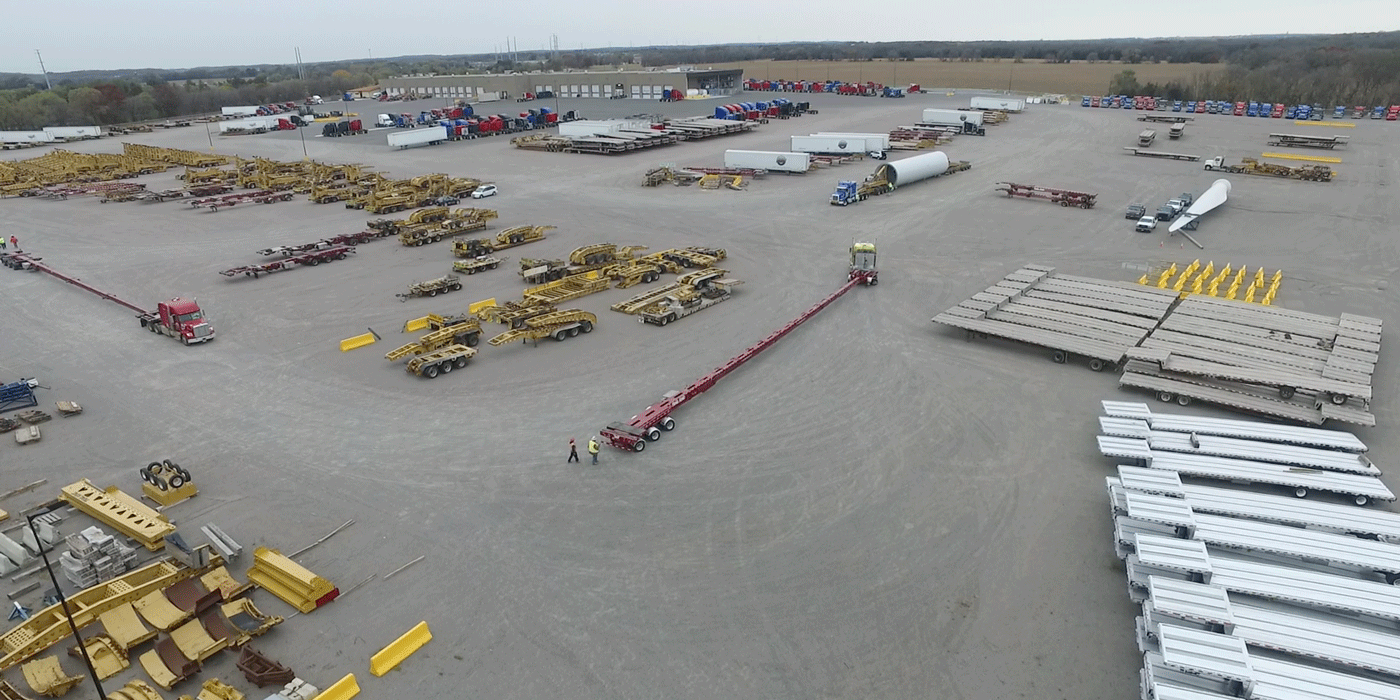 In order to meet your demands on time, they should have assets spread throughout North America. The best way to do that is by having facilities, like trailer yards and maintenance facilities, in key areas that allow them to serve your needs quickly — especially when unexpected needs arise.
In order to meet your demands on time, they should have assets spread throughout North America. The best way to do that is by having facilities, like trailer yards and maintenance facilities, in key areas that allow them to serve your needs quickly — especially when unexpected needs arise.
But what good are those assets sitting in trailer yards if there's no one nearby to drive them? Drivers should also be spread throughout the country in a way that matches your network. While you certainly don't need every driver's address, asking your carrier for a map like the example below will help you better understand how they can adapt to your needs.
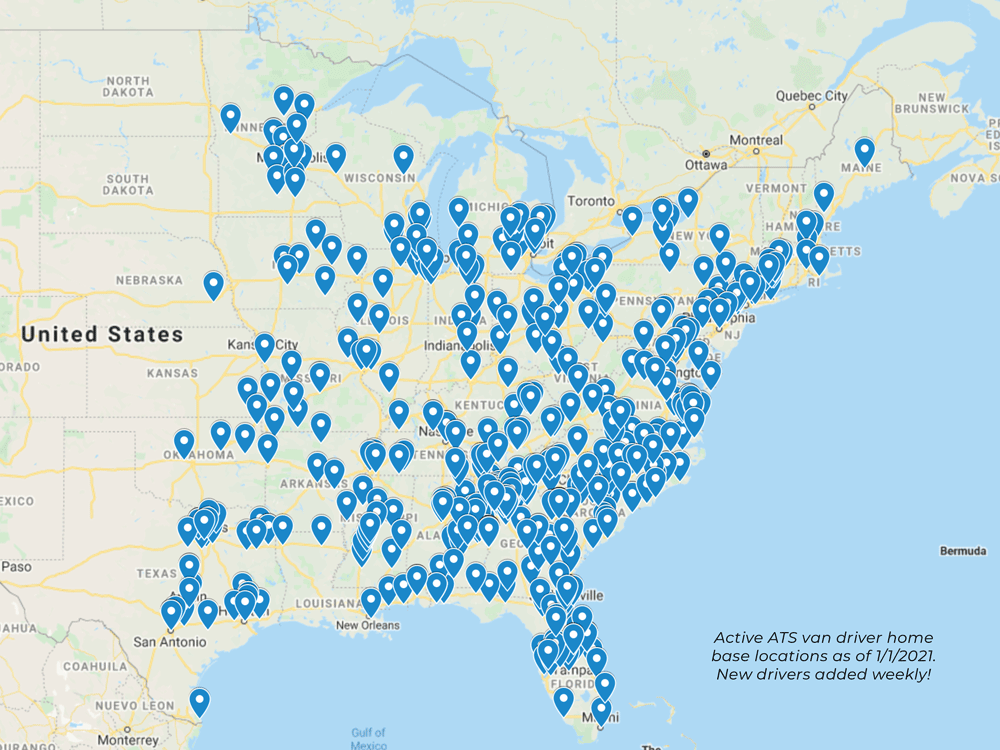 If they don’t have the right equipment close to where you need it, how long will you have to wait? How much will that wait time cost you? Can you afford to leave your customers waiting?
If they don’t have the right equipment close to where you need it, how long will you have to wait? How much will that wait time cost you? Can you afford to leave your customers waiting?
If you break it down that way, it could be worth paying more upfront to ensure capacity is at your fingertips when you need it. That synergy between your network and your carrier's network will help everything flow efficiently, which will help keep costs in line despite inflated rates.
Another piece of infrastructure to consider is warehousing facilities. You’ve probably had situations arise where you had overflow inventories and didn’t have a facility of your own to put it in. Was your carrier able to support you? Most of the cheapest freight companies won’t have those facilities.
Equipment
How many times has your freight been left stranded due to a breakdown? Chances are the age of the equipment could have been part of the problem. Yes, newer equipment can run into issues, there’s no denying that. But chances of a truck breakdown are much higher with older equipment due to wear and tear.
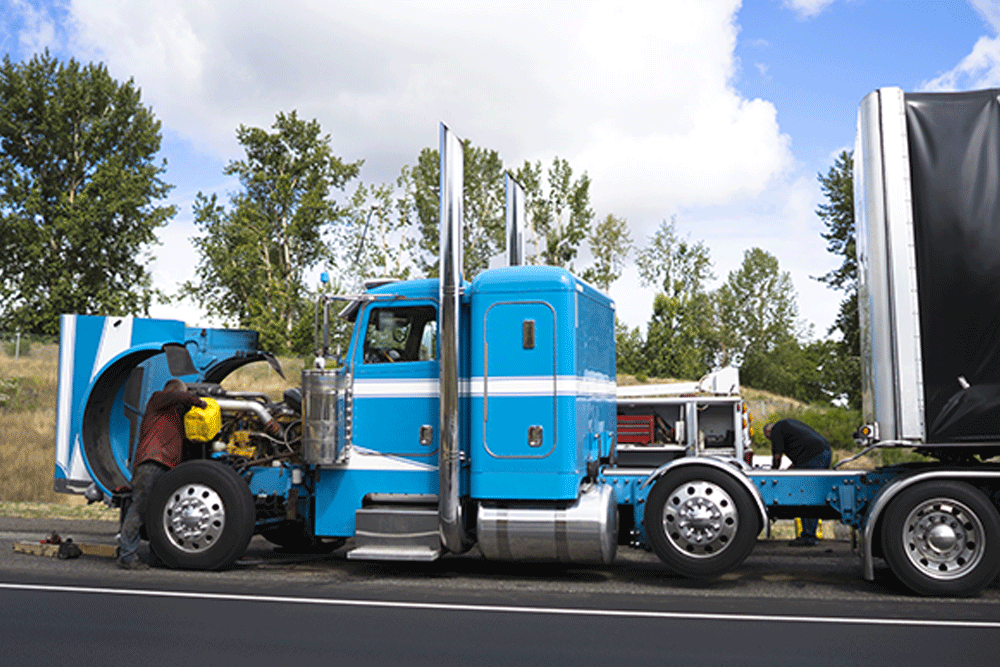 It doesn’t hurt to ask your carrier how old their equipment is, on average. Many low-cost carriers won’t invest in new equipment on a regular basis in order to keep costs down. This results in an older-than-average fleet that a more reliable carrier may have retired because it wasn’t up to safety and reliability standards anymore.
It doesn’t hurt to ask your carrier how old their equipment is, on average. Many low-cost carriers won’t invest in new equipment on a regular basis in order to keep costs down. This results in an older-than-average fleet that a more reliable carrier may have retired because it wasn’t up to safety and reliability standards anymore.
Beyond the age of the equipment, how often does your carrier maintain its equipment? Buying newer equipment doesn’t mean much if it’s not maintained well. The problem only escalates as the equipment gets older.
A regular maintenance schedule helps ensure the consistent condition and safe performance of the equipment over time. It also means a better and more consistent delivery experience for you. Maintenance is all about preventing performance failures in the first place. And a carrier that diligently follows a disciplined and regular maintenance protocol is one you’ll be able to count on.
Equipment can also include the additional tools and accessories that travel with the driver and the trailer. These will help ensure timely and efficient loading and securement, getting your load on the road faster and helping it travel more safely.
Ask your carrier how many straps and chains the driver typically has to properly secure their loads. In the case of dry van drivers, are they provided pad/blanket wrap to protect your freight that doesn’t fit onto a pallet? While it may cost you more upfront to use pad/blanket wrap, it may save you damage, delays and customer loyalty in the long run.
As you’re considering carriers, consider this. If your freight arrives damaged because it wasn’t secured properly or transported safely, what will that cost you? Will it lead to delays?
Technology
As the saying goes, “Time is money.” The technology and service part of the “real cost” equation is where that saying really holds true.
Many top trucking companies provide access to a customer portal, which provides 24/7 access to load tracking information and essential documentation. These technologies allow you round-the-clock visibility to your shipments and provide instant access to delivery information you need.
These types of technologies usually aren’t an option when you work with the cheapest trucking companies. If they’re charging less to move your freight, they simply won’t have the financial resources to pay for those services.
Service
If technology isn’t your thing, maybe you'd be interested to know that many of the best logistics providers also offer you a single, dedicated point of contact. If you have any questions or concerns about your load, you can call, email or text them at any time and you’ll the get answers you need.
Again, time is money. If you’re getting bounced around from person to person until you find someone to help you, you’re not only wasting time, but you’re also going to have to explain a lot of the background information a consistent point of contact would already know.
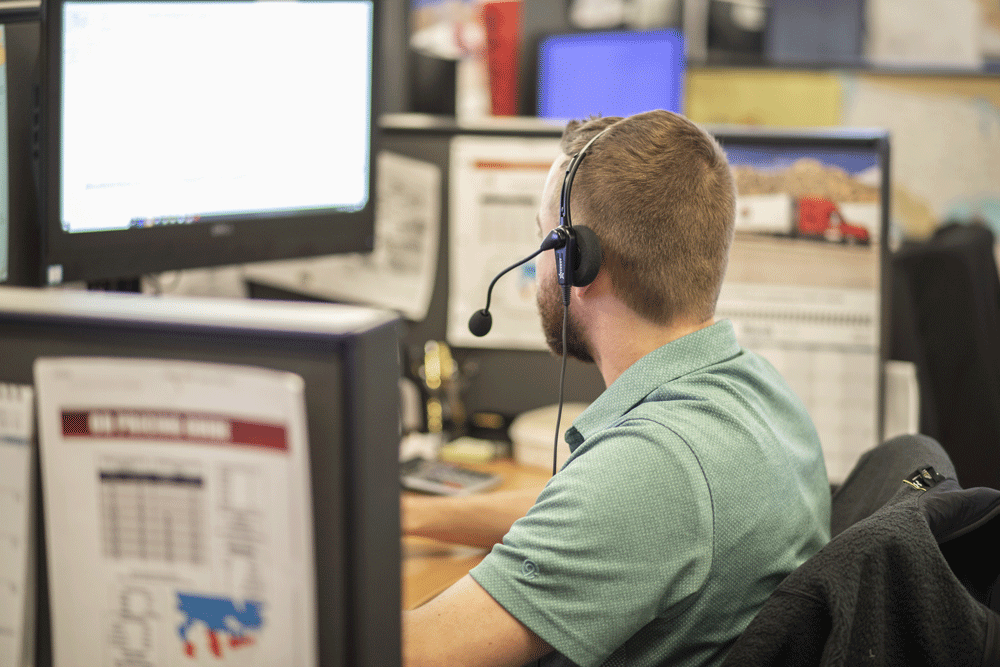 Additionally, a dedicated point of contact establishes a relationship with you and your business. They understand your needs and can anticipate challenges that may come with your industry’s shipments or your particular freight and will have a contingency plan to address them.
Additionally, a dedicated point of contact establishes a relationship with you and your business. They understand your needs and can anticipate challenges that may come with your industry’s shipments or your particular freight and will have a contingency plan to address them.
Beyond the technology your carrier provides you, what kind of technologies do they have internally to provide you better service?
- Do their systems track your preferences (probably documented by your single point of contact, by the way)?
- Does that information get shared at every level, including straight to technology on the driver’s dash, so the entire team servicing your load is on the same page with how you like things done?
And speaking of the driver’s dash, does your transportation partner use systems that teach drivers the latest safety practices and hold them accountable? These tools can improve driving practices and ensure your freight is secured and transported properly and safely. Don’t be afraid to ask what platforms they use to ensure your reputation — and your freight — is safe.
Experience
Like any industry, as drivers gain more experience, they make more money. To keep experienced, well-qualified drivers — and in today’s market to ensure consistent capacity is available for you — carriers have to be willing to pay them.
Better pay brings happier drivers that provide better service. We’ve all been in that job where we feel like we’re underpaid and, whether consciously or subconsciously, we don’t perform up to our capabilities. Drivers are the same.
Drivers who believe they’re being paid fairly will perform their job better and stick around with a company longer. This means more consistent and quality deliveries for you.
 Tenured drivers usually know what it takes to get the job done efficiently, with the best outcome for everyone involved. They’re more prepared and will call ahead of time with questions, like where to enter the facility or where they should park.
Tenured drivers usually know what it takes to get the job done efficiently, with the best outcome for everyone involved. They’re more prepared and will call ahead of time with questions, like where to enter the facility or where they should park.
Less experienced drivers — or drivers who aren’t being paid what they’re worth — are much less likely to be proactive or focused on service. In some cases, they may not even be empowered or allowed to do what’s best for the customer
That experience is something you likely won’t get with the cheap trucking companies. A common way to cut costs in the industry is by paying drivers less, so those well-qualified drivers probably aren’t staying at those companies long.
Safety
Many of the items we’ve previously discussed result in safer deliveries, like better equipment and more experienced drivers. But is safety just a convenient result or is it a core cultural value within your carrier’s company?
Many of the top trucking companies invest in safety programs, whether it’s technology, safety and securement training, or in-house teams dedicated to permitting and route planning. Or maybe it’s all of the above.
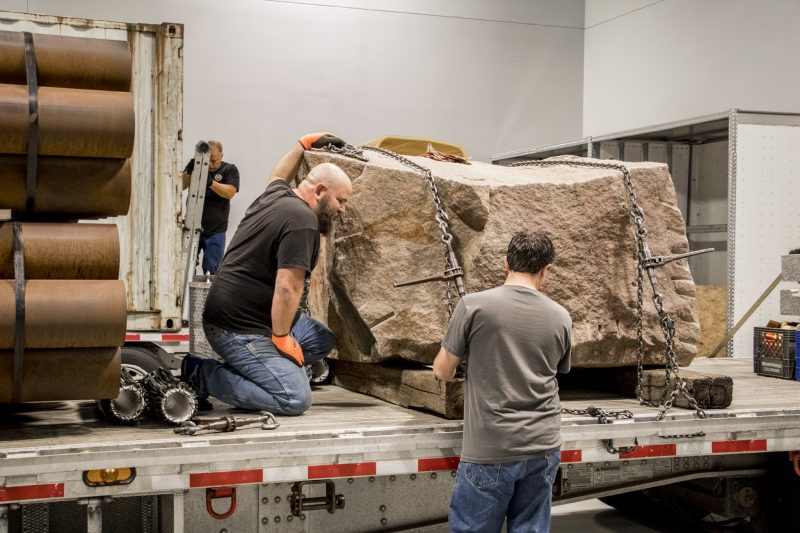 These programs not only ensure your freight has a much higher likelihood of being delivered safely, but they also protect the motoring public and help keep your reputation intact.
These programs not only ensure your freight has a much higher likelihood of being delivered safely, but they also protect the motoring public and help keep your reputation intact.
If your freight is on a trailer that happens to be involved in an accident, or if someone witnesses a driver driving recklessly, you could be guilty by association in some cases. This is especially true if it’s on an open-deck trailer with your equipment visible, or a dry van trailer with your name on the side of it.
When you work with a carrier that invests in safety as a foundational value, the likelihood of those incidents occurring is much lower.
The Real Cost of Using The Lowest Cost Carrier
How long does it take for you to find a carrier you've fully vetted, one you know you can trust? A carrier that understands your unique transportation needs and preferences and doesn’t need them explained.
Having someone understand your securement preferences, the best way to enter your facilities and your regular work hours is not only more efficient to work with, but can also serve as an extension of your team or brand in front of your customer.
Are you prepared to start over and risk that the carrier turns out to be subpar — or worse, out of business next year because they ran out of money or were shut down for safety concerns? If you continuously work with the cheapest freight providers, there’s an increased chance you could be put in that type of situation.
Even after reading this, you still do have a choice in the type of carrier you work with. Maybe the short-term savings you’d achieve when working with low-cost carriers outweigh the risk.
However, if this has you reconsidering where you’d like to cut costs, you now see that it pays to do your research when selecting your next carrier. Look for reviews on their website or ask for references. If they’re not willing to provide any, that’s probably a sign that they’re not right for you.
In the end, the common denominator is the need to make our customers happy. By not allowing price to be the only factor as you consider carriers for your important loads, you’ll be prepared to make the best transportation decisions to ensure consistent, reliable service and long-term relationships that protect your bottom line in the long run.



